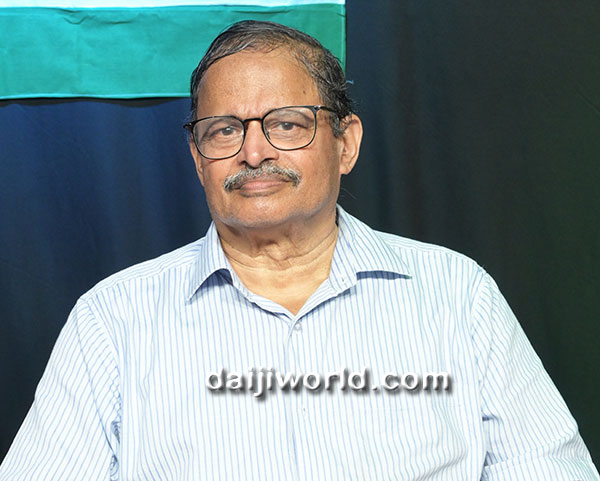Thejaswi U Poojary
Daijiworld Media Network - Udupi
Udupi, Aug 15: Ex-colonel Dr F E A Rodrigues began his distinguished journey with the Indian Army in 1978, serving with dedication and pride for 29 years until his voluntary retirement in 2006. A doctor by profession, his decision to join the armed forces was inspired by friends who were already serving and often shared stories of their experiences. Their accounts sparked his interest, and after clearing the entrance examination, Dr F E A Rodrigues joined the Army as an officer — a path that shaped the rest of his life.
Reflecting on his career choice, Dr Rodrigues recalled that upon graduating in medicine, he had two clear options: to open a private clinic or take up a government job. Instead, he chose the road less travelled and entered military service. “Most of my career was in the Army. One should join out of their own will, not compulsion,” he emphasised.

Dr Rodrigues explained that there are two primary routes to enter the Army — either as an officer or as a soldier. For those aspiring to join as soldiers, the Agniveer scheme currently offers a four-year training and service programme. “Recruitment offices are present in every district. Candidates must apply through the official online portal, and there are different categories to choose from depending on eligibility,” he noted.
Coming from a family with a government service background — his father was a government employee — Dr Rodrigues received full support when he decided to join the Army. However, he pointed out that at the time, his family had little understanding of what Army life truly entailed. “Life in the Army is much simpler than civilian life,” he remarked, highlighting the disciplined and purpose-driven lifestyle of military personnel.
One of the biggest challenges faced by soldiers, according to him, is obtaining leave. “Soldiers often find it difficult to get leave, especially during critical times like the present, when the situation on the border is tense. Emergency leave is granted only in extreme circumstances,” he explained. He urged government employees who interact with soldiers for documentation purposes to be considerate. “If a soldier has to spend his entire leave period at government offices completing paperwork, he will have no time left to spend with his family,” he added.
Describing the day-to-day life of soldiers posted in field areas, Dr Rodrigues painted a vivid picture: “They live in bunkers, wake up at 4 am, and start their day with rigorous physical training. No other profession can compare with the demands of Army work.” He spoke with deep respect for the resilience and commitment shown by the men and women in uniform.
For Dr F E A Rodrigues, the Army was more than a career — it was a calling. His journey from a young doctor to a Colonel in the Indian Army stands as a testament to courage, discipline, and selfless service. Even after leaving the force, his words continue to inspire the next generation to serve the nation with dedication and pride.